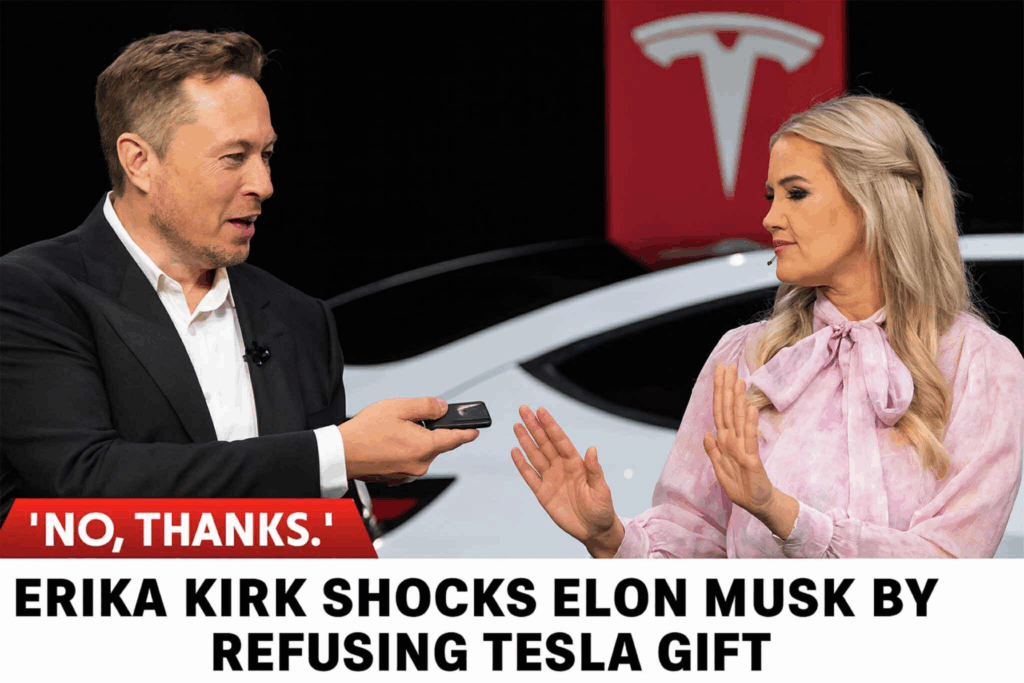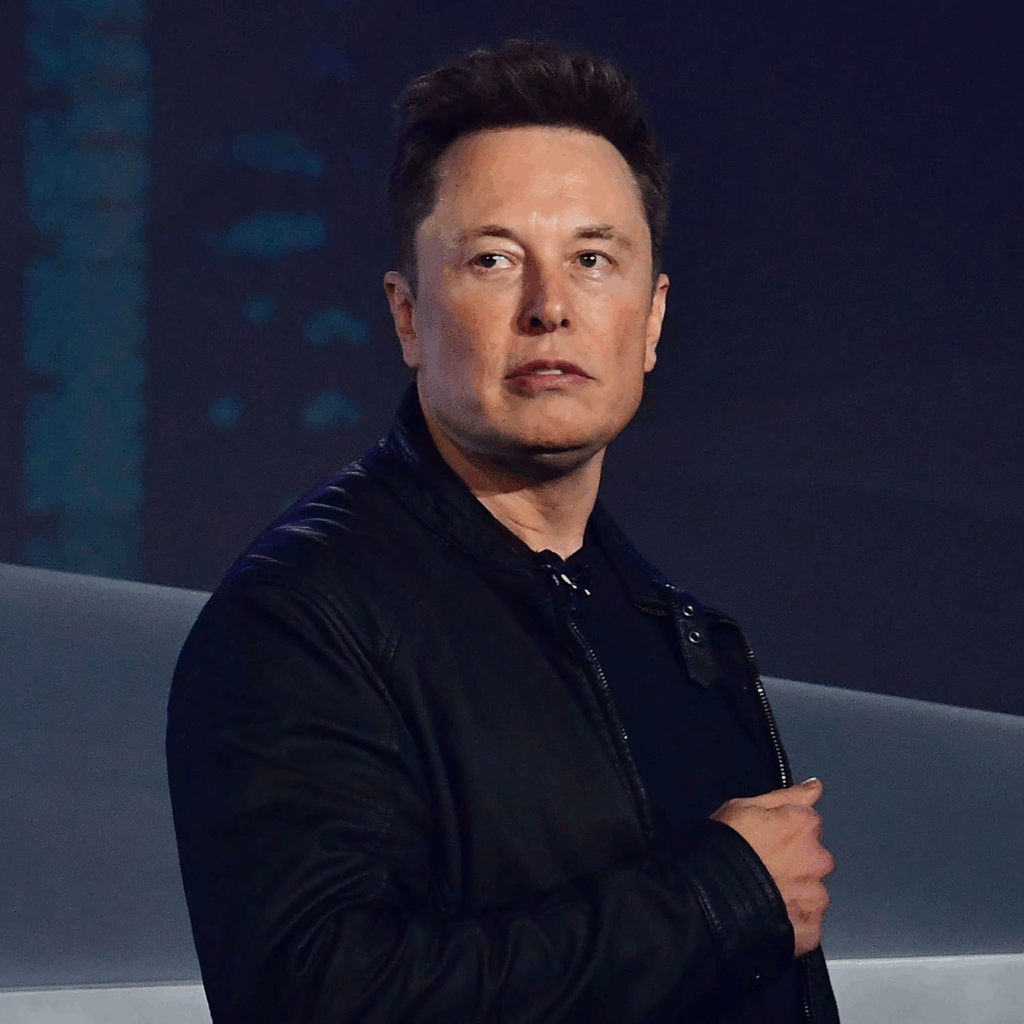VT. BREAKING NEWS: When Elon Musk Tried to Hand Her the Keys to a Brand-New Tesla, Erika Kirk Stunned Everyone With Just Two Words — “No, Thanks.”
The flash of cameras was blinding. Reporters pressed forward, expecting another headline moment from Elon Musk — the world’s most famous innovator and disruptor. In his hand, the keys to a gleaming, customized Tesla Model S, wrapped with a ribbon, meant as a personal gift for Erika Kirk, widow of Charlie Kirk. It was supposed to be a perfect gesture: technology meeting legacy, power meeting faith.

But then came the pause. Erika took the keys, held them for a second, and gently pushed them back. Her voice was soft, almost fragile, but carried across the room like thunder: “No, thanks.”
The silence that followed was breathtaking. Musk himself blinked, momentarily stunned. The audience froze. And then Erika explained — not with bitterness, but with clarity: “I don’t measure legacy in horsepower or luxury. My husband’s mission was faith, family, and freedom — not fancy cars.”
Those words lit up the world. Within minutes, hashtags like #FaithOverFortune, #NoThanksTesla, and #LegacyNotLuxury began trending across social platforms. Millions debated her decision. Some saw it as the most powerful act of humility America has seen in years. Others questioned how anyone could refuse a Tesla, especially one tied to Elon Musk himself.
For Musk, the gesture was more than generosity. Insiders confirmed he wanted to tie Tesla’s name to Charlie Kirk’s legacy — transforming tragedy into global symbolism. A story of innovation fused with faith, a car meant not just to drive but to carry forward the memory of a man whose voice once rallied millions. To Musk, it was branding genius. To Erika, it was a temptation she had to turn down.
And in turning it down, Erika Kirk created a story bigger than the Tesla itself. Her refusal wasn’t about rejecting Musk — it was about honoring Charlie. She reminded the world that not every legacy can be wrapped in steel and horsepower. Some are built in silence, in devotion, in the love of a family that refuses to cash in on memory.

“This isn’t about me, or about a car,” Erika later said. “It’s about remembering who my husband was. He gave everything for his beliefs. The least I can do is keep his memory pure. America gave us a chance — now I give it all back.”
That moment, one single act of quiet defiance, flipped the script. Instead of Tesla’s gleam, it was Erika’s resolve that stole every headline. Instead of Elon Musk’s spectacle, it was Erika Kirk’s humility that shook the internet.
And maybe that’s the real legacy: a reminder that in a world obsessed with wealth, status, and speed, sometimes the most powerful words are the simplest ones — “No, thanks.”


